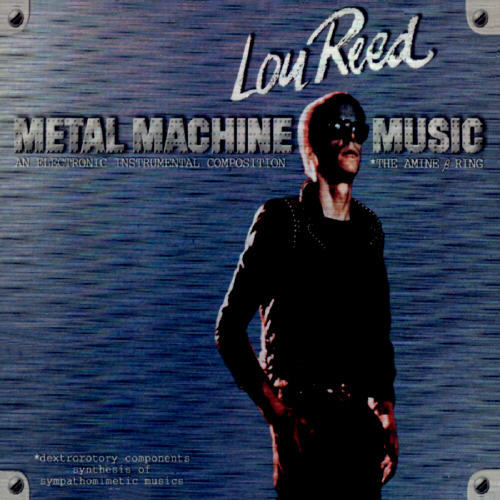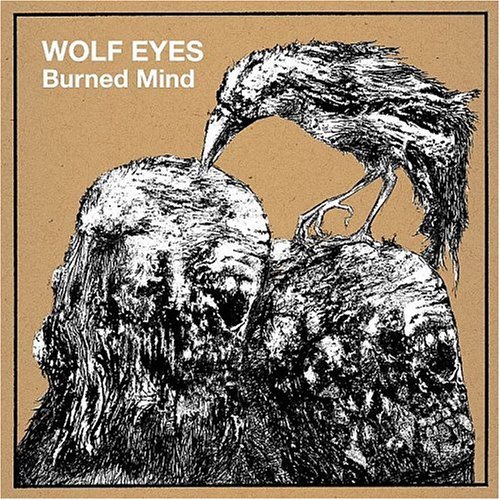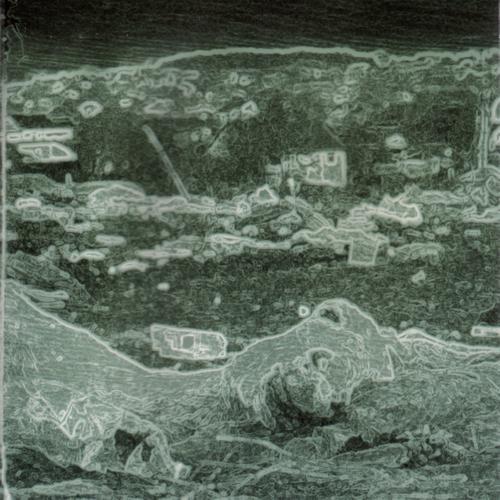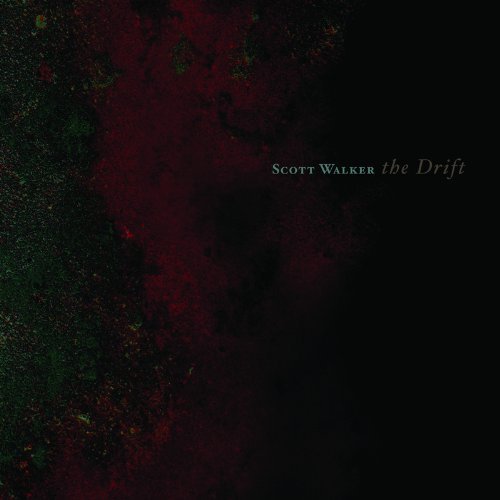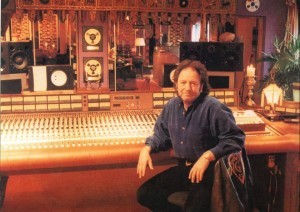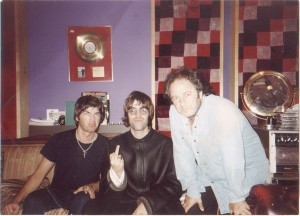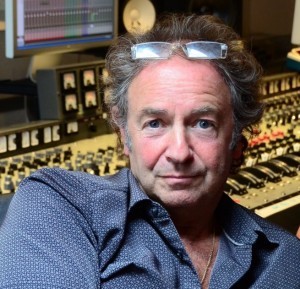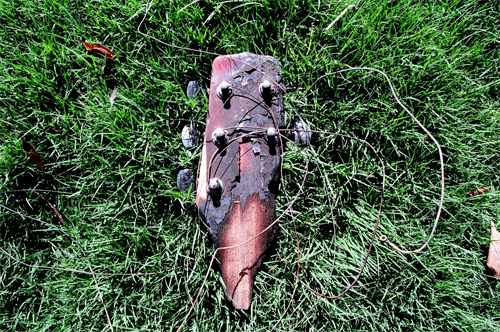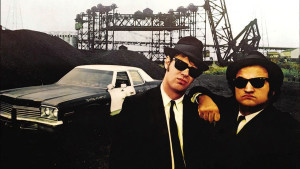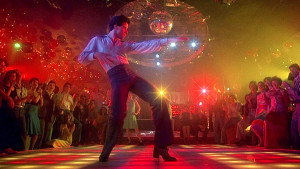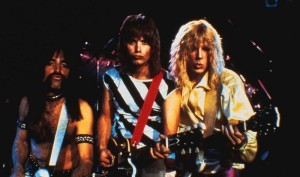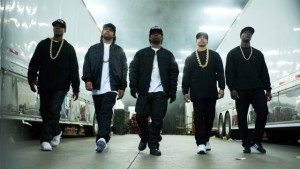James Moore's Blog, page 95
November 6, 2015
On Promotional And Concert Photography With Ryan Donnelly

Ryan Donnelly
Many of us have reached that point when our album is ready to be unleashed on the world, and we realize that we need to address that elephant in the room. Photography. What should we do for our promotional photography? Sit in the park? Dress like insects? Stand against a brick wall frowning? Invite cousin Ed over with his camera and offer him a 6 pack? What about concert photography? How do you prepare?
Professional photographer Ryan Donnelly of Ryan Donnelly Images is here to shed some light on the dilemma. Ryan is a surreal portrait, landscape, urban, and music photographer from Calgary, Alberta. Ryan has worked with critically acclaimed acts such as The Tea Party, The Reason, Kobra and the Lotus as well as many Calgary-based acts such as Every Hour Kills. He’s also teamed up with award-winning music video director Doug Cook to shoot music video photography.
Let’s begin the dissection.
James: There are a lot of things that either attract me or repel me when it comes to music photography. Any advice on what makes a great image or how to achieve one?
Ryan Donnelly: Yeah, hire a professional (laughs). In all seriousness though I think is of paramount importance to do your research and connect with a photographer that has some vision and the skill to pull it off.

The Unravelling – credit Ryan Donnelly
James: So you wouldn’t suggest an amateur armed with an Iphone or tablet to get the job done?
Ryan Donnelly: That is a definite no from me. This is not to say that a smartphone or tablet is incapable of capturing an image worth looking at, but this is no different than trying to capture the audio of you live show on one, it can be done, but should it?
James: Good point. So what should be done?
Ryan Donnelly: Research your photographer. One thing we photographers love to do is show our work to the public, we have to really. We always have a website, a flickr account, or a 500PX account, most of us have all three and more, so it is easy to see what a photographer is capable of. Let the work speak for the photographer, not the other way around.

Jeff Martin of The Tea Party – credit Ryan Donnelly
James: You have photographed some prolific artists such as The Tea Party, The Reason and many more, how long have you been shooting live music?
Ryan Donnelly: I have shot live music for almost as long as I have been shooting, must be over seven years now actually.
James: How do you view live photography and the importance it plays for a bands image?
Ryan Donnelly: I think live photography is very important to a band, and it is a shame to see how many bands leave this aspect in the hands of amateurs. Your live show is your band at its truest form, and those images are both your publicity and your musical legacy, why would you let just anyone with any level of skill and gear to cover it?

Laura Anne Hickli – credit Ryan Donnelly
James: Many independent bands do not have the funds to pay a different photographer to cover every show during the tour or even during their weekly gigs, so inevitably there is going to be images surfacing of the Iphone quality.
Ryan Donnelly: Of course you are very right. The problem isn’t that bands have amateurs shooting their shows, the problem is that they have amateurs shooting all their shows. So my suggestion, do your research, hire a professional that has both the gear capable of producing high grade images and the skill to pull it off. Pay that artist out of both respect and a guarantee for the work that photographer provides, and don’t sign any forms that release the images of the band to the photographer, the point of these images is for you to promote yourself with, and since you paid, well then you own them. It is the music business right?

Ghost – one of Ryan Donnelly’s picks for interesting promotional shots
James: That’s live music photography covered. Any thoughts on band promotional photography?
Ryan Donnelly: Same as my thoughts on live photography really. Do your research and hire a professional with a style that compliments yours. I actually think it is important that the photographer at the very least likes your style of music, and that they get the image you are trying to create. In my opinion, all photography needs to come from a place of honesty in order to manifest into an image worth looking at.

Sacha from Every Hour Kills – credit Ryan Donnelly
James: It’s a bit of touchy subject, but how much input should a band or artist give the photographer?
Ryan Donnelly: When it comes to collaborative efforts with fellow artists it is more than expected and appropriate to receive creative input from the band. The basis for the idea should be somewhat crystallized between both parties, or else you end up with an image that misses its mark completely, and both parties end up unhappy. Of course if you find the right photographer for the job then you don’t have to worry about this at all, but if they mention a photo where there is a brick wall involved, that’s not your photographer (laughs).

Kobra and the Lotus – credit Ryan Donnelly
James: How important is an artist’s image and do you have advice for musicians in regards to their image?
Ryan Donnelly: I can’t for the life of me recall more than one single promotional image from U2 or Nickleback, but when it comes to creative juggernauts like Behemoth, Bjork, Ghost, David Bowie and Daft Punk I can recall so many memorable images. I think that anything unique that can give you an edge over the status quo is worth pursuing. Attempt to fit in at your own peril.
James:
Thank you for your time and advice in regards to such an integral part of the process.
Independent Music Promotions’ (www.independentmusicpromotions.com) revolutionary music PR campaigns are the most effective in the industry. Submit your music to us today.
The post On Promotional And Concert Photography With Ryan Donnelly appeared first on Independent Music Promotions - Guaranteed Music PR for Music With Depth Worldwide.
November 5, 2015
Millennials & Music
I guess it was inevitable that I would eventually end up writing an article about millennials and music – I mean part of how I make my living is writing about the music industry and this is definitely a topic I would be remiss in ignoring. So let’s have at it. After all – a huge part of my career has been helping people market their bands to new demographic. This might be a hard article to write because even though I fall into the target demographic I don’t really identify with the term, but oh well – here goes nothing!

Here’s the thing – the thing that not a lot of people want to admit. I think that millennials are starting to get it. Despite what old white people might say, with more access to information than any other generation in the history of the species this generation has a much more diverse taste in music and they are increasingly aware of how hard it is for independent artists to make it. And young people now really place an emphasis on the individuality of their music tastes. That means that while there is less money coming into the music industry it’s being spread around more equally. It means that they are more willing to give an artist twenty bucks on Bandcamp for a record they adore, and in some way absolving them for having torrented the rest of that bands discography.
Remember – millennials love guiltless consumerism. One of the reasons that streaming has been so successful is because it provides exactly that – a way to listen to music for free whilst simultaneously supporting the artists they love. We live in a world where a band like Pomplamoose can get the word out about the financial struggles of touring (Even though – as you should realize by now – Pomplamoose were doing it wrong) The point being – there is a lot more to the music industry than meets the eye – but now in a world of centralized information sources like Facebook millennials (Which is an increasing number these days) are often exposed, in great detail, to the how and why of the music industry and the direct consequences of their actions.

The higher the level of education we have about bands and the music industry in general then the better things get for everybody. For years we operated under the illusion that musicians were Dionysian figures who were destined for greatness. Now young people are starting to know better. With the number of touring musicians and club shows on the rise, more and more folks seem to be getting a sense for what it means to live in the music industry. That being said – I write this as someone who lives and works in the music industry every day – my group of friends definitely isn’t indicative of the world as a whole – but the trends seem to suggest that I’m right.
What does this mean for you? The common fan is getting a better sense that your career in the music industry is still y’know a career. Part of what has improved the situation is celebrities like Will Wheaton who with vicious social media posts are helping normal people to realize that folks shouldn’t be willing to do things just for ‘exposure’. The general attitude and approach to the music industry is changing – and this is a very good thing. Even as I type this, industry experts are developing new-school techniques that allow us to take full advantage of this situation and delve into new ways of earning money for bands.
Of course – the millennial market is still very new and we would be remiss in saying that we know everything about marketing to millennials. Here’s the key thing though – to market to any group you have to look at their values. For millennials this means political activism, economic and social equality, charities, and of course the arts. Obviously as a musician the arts is covered, but any way that you can affiliate your work with these, and other ideas that millennials have become enamored with.

This isn’t the easiest thing – but an easy hack is to look at how popular websites and brands geared towards millennials market themselves. When you start to look at the ways they set up their websites and social media pages you can start to get a sense of what you need to do in order to help advance your own campaign. This isn’t always easy – but no one said it would be. Yet if you can start to get at what makes millennials tick then you’re closer than ever to a potential breakthrough.
At the end of the day – figuring out how to market to millennials should be a key struggle for any band out there trying to make their mark. A lot of very special things are rising up in the music industry right now – but we all need to work together to figure out how to get them to the biggest, most financially capable, and interested markets possible. As a millennial who doesn’t really understand other millennials, I too am in a kind of demented situation. But that doesn’t mean we should totally cast aside the millennial experience. After all, simply by being aware of the dedication to travel, and getting back to their roots that millennials seem to flaunt it seems like we might be on the verge of finding a whole generation of touring musicians.
The point I think I’m trying to make is the same point that should define a lot of your marketing strategies. To understand a demographic – look at their interests and then cater to that. If you get a sense of what makes millennials tick then you’re already far ahead of many of your peers. Remember that someone like Taylor Swift only succeeds because she perfectly reflects what millennials are all about. As a recent Noisey article put it – “She’s everyone’s BFF”. Fitting your work into the millennial experience is perhaps the most important aspect of surviving in the music industry and it’s the how that’s the struggle.
Independent Music Promotions’ (www.independentmusicpromotions.com) revolutionary music PR campaigns are the most effective in the industry. Submit your music to us today.
The post Millennials & Music appeared first on Independent Music Promotions - Guaranteed Music PR for Music With Depth Worldwide.
October 26, 2015
Top 5 Albums to Scare Your Neighbors With
It’s the end of October and the ghosts are marching two by two. Faces are appearing in trees. Black cats are eating dead rats in the alleys. Halloween is almost here and no one can be safe from a sudden heart-stopping scare. Proceed with caution. Be prepared. Have at the ready something loud to frighten off possible intruders. Discarding any black metal, Norwegian death metal and most of Marilyn Manson’s albums, these are the top five albums to scare your neighbors with. If you can’t hear them, they’re not there.
#5
Metal Machine Music
by Lou Reed
Invite over the buddies and pals, serve them pumpkin-flavored booze, feed them candy corn and watch them choke on their own tongue and run screaming through the house when you put on Lou Reed’s Metal Machine Music. Reed went all Edwardo Scissorhands on the tapes for his fifth “solo” album. Put out by RCA Records in 1975 merely as a contractual obligation, MMM is four sides and over an hour of screeching, grating, mind-numbing guitar noise. Different tracks of mutilated feedback run together at different speeds like tapeworms through a distended organism. Hilarious to think of someone hoping for another “Perfect Day,” getting prepped and comfortable for a night of tunes, then getting this. It’s not nice. It’s not friendly. But, it laid the groundwork for eventual acts to claim “noise” as a legitimate musical genre. If you want the trick-or-treaters dressed as Dora the Explorer and the red M&M to stay away from your house, look no further. You’ll probably want your own pair of earplugs, though.
#4
Burned Mind
by Wolf Eyes
Oh, it starts off slow. It starts off quiet. Don’t turn it up more. It’s fine. Burned Mind, by Wolf Eyes, was released in 2004 and sort of broke open further the idea of pure chaotic noise as something to be listened to. The three members in Wolf Eyes wholeheartedly picked up where Metal Machine Music left off. Burned Eyes seeks to destroy not only the speakers, but the wiring, the padding, the outer casings and then drill into your ear drums. It’s all sputtering tape squalls, feedback, bouts of pain, desperation, paranoia and outright fear. Jabba the Hutt and Chewbacca try to swallow each other whole in the background. It is complete sonic torment and it is not safe. It’ll sound like your radio is broken, but is also transforming into some unexplainable extraterrestrial tape demon. It’s not the police that’ll be called, it’ll be the SWAT Team.
#3
Knife Play
by Xiu Xiu
Xiu Xiu’s debut album, Knife Play, opens with the song “Don Diasco.” Many degrees of clattering, intimating percussion swirl around singer Jamie Stewart’s frenetic sad-fuck wail. The devastation is toxic. The listener’s ears become short circuiting electrical sockets. My friends, it doesn’t get any better from there. “I Broke Up (SJ)” is a shackled trance-march into Stewart’s manic head-space — a place that becomes shudderingly familiar throughout Xiu Xiu’s discography — and by the third song, “Luber,” you’ll be wondering if some brown acid made it into your evening soup. The remainder of the album continues in that same vein. The ghosts of sexual repression and workday shifts are summoned and vaunt across the room. You’ll be hiding behind couches and peaking through blinds.
#2
The Drift
by Scott Walker
The long music career of Scott Walker fuels an interesting backstory going into his thirteenth album, The Drift, released in 2006. Walker’s been making music since the Sixties when he started working with pop song structures in the United Kingdom and released fairly successful albums there. God knows what happened along the way. His later albums are anything but pop. The Drift‘s opening song, “Cossacks Are,” is the soundtrack to a murder spree; the moment our heroine leaps from a two-story bush to run through the darkened street from her eventual captor. Walker bellows and moans like the Addams Family’s Lurch. His wails are metered, contextual and carefully fit into the mix. He stands in the shadows, only the white of his eyes visible. “That’s a nice suit,” he comments. “That’s a swanky suit.” Walker’s operatic voice rises and falls in a sea of mutilated instrumentation. The strings of a violin provide the only calm as a constant beat steps down hard on the ground. Each song is like a new scene in a slow-evolving horror film.
#1
Slipknot
by Slipknot
It’s not just their masks, but goddamn does it help. When Slipknot cut through the ceiling of that atrocious nu-metal scene of the late ’90’s, they did it in grand carnival clown style by creating not only one of the greatest metal albums made, but also one of the eeriest. With their nine-member team Slipknot employed every sound in the freak database. Craig Jones and Sid Wilson added hypnotic effects and digressions. Chris Fehn and Shawn Crahan played gigantic beer kegs, busted drums and whatever was lying around. Guitarists Jim Root and Mick Thompson brought the ax evil necessary for any metal album, but brought a new style to the genre. On songs, “Eyeless” and “Surfacing,” they get a high-pitched guitar tone that sounds ripped from Satan’s personal choir.
“The whole thing I think is sick,” a warped recording repeats on the opening track, surrounded by what sound like sirens of warning. The chills are crawling up your back before you even realize it. Then “(sic)” cracks your skull with drummer Jody Jordison’s pummeling double-bass. Corey Taylor not only has the most torching vocal chord of all metal singers, but he’s got this deranged lunacy that comes out in hypersensitive hyperventilating cries and whines. “You can’t kill me / ’cause I’m already inside you,” he sings on the song. That’s just some cold shit to say to a motherfucker. You don’t sleep after someone says that to you. Throughout the album Taylor sounds like he’s dragging behind him a dead body and with every pull it gets heavier and heavier as the adrenaline wears off.
Independent Music Promotions’ (www.independentmusicpromotions.com) revolutionary music PR campaigns are the most effective in the industry. Submit your music to us today.
The post Top 5 Albums to Scare Your Neighbors With appeared first on Independent Music Promotions - Guaranteed Music PR for Music With Depth Worldwide.
Independent Industry Figures – Stuart Epps
Independent Industry Figures is a weekly column at IMP where we do a feature on a different music industry figure every week and try to better understand what they’re all about. With each installment we try and get a better sense of what it means to make a living in the music industry and how people can get involved. After all – what can we do but work hard and try to help each other live the dream?
Stuart Epps is something of a living legend, and his life is worth at least a book, maybe more. (James interviewed him previously here). As he pontificated about his career and life I was shocked, not just by the kindness and sweetness of this man, but the incredible experiences he’s had and his unique perspective on the music industry that comes as a result of that. He gave me a piece of advice I’ve never heard before and was always willing to elaborate on the life he has chosen to live (And in some ways lucked into).
See- Stuart Epps was on tour in America with Elton John by the age of 19 – he knows what it takes to break a big artist. He worked with Jimmy Page on the legendary Coda album and also with The Firm. He saw Jimi Hendrix back in the day. He gets it. He has a fundamental understanding of rock and roll that I feel almost no one else out there could ever match again. In his years of work it’s sculpted a man who knows what he likes, and what sucks, and I feel like his opinion carries a lot of weight – how many other people can even match his level of brilliance?
At the end of the day – this is just another great entry into the Independent Industry Figures series with a guy who knew all of the not-so-independent figures and who has been able to craft a unique worldview as a result of that. The original spirit of rock and roll rings forth in guys like Stuart, guys who have been through it all and understand the sense of suffering that defined it for so long. Utterly brilliant and endlessly interesting – the man gave me the interview of a life time.
Stuart Epps is now working with independent artists across the globe and is available online for your production, mixing and mastering needs. Find out more info at Epps Music Production as well as the video below.
How are you?
I’m absolutely wonderful!
For those who aren’t familiar with your body of work, can you just explain what you do?
It’s a fairly lengthy story but I’ll try and encapsulate it. At fifteen I left school to work for Dick James the Beatles music publisher. I got the job from a friend of mine who had been office boy. He got promoted and told me about the opening and music was all I cared about so I went for an interview and got the job.
I worked for him starting in 1967, it was an amazing time in London. I didn’t live in central London at the time so it was all a bit new to me. People were freaking out and becoming hippies and all this amazing music was going on. As office boy it was good just to be working for a proper music company. I was seeing how the music business really worked from the complete ground up. I had packages to deliver to Paul McCartney and stuff like that. It was all very exciting. I was one of the first people to hear the Beatles White Album. That was a while later though.
There was a progression with Dick James. You started out as office boy and then you became a cutting engineer. Being a cutting engineer go me to a guy called Reg White who was an outrageous singer songwriter who changed his name to Elton John. We became friends and he plated me some songs that just blew my head off. I thought I was a good songwriter but this was just so much better than anything I could do. So I thought maybe I should change direction and become a part of the industry.
Everything seemed to happen quickly I became a studio engineer when I was 17 and then decided I wanted to go into the music business. At the age of 18 I was working for Elton John’s producer. This was all happening so qucikly – it iddn’t seem like that at the time because we were plugging away trying to make Elton a big selling artist but it seemed to take a long time. Elton was developing his live act – I didn’t go on the first tour but at eighteen I got to go with him as his personal assistant.
Prior to this I had some done some production with Elton playing piano. I suppose I saw myself getting more into the management side But I found myself working for Elton John. This was when I was 18-19-20. At 20 we started Rocke Records which was one of the first independent record labels. We started breaking some newer artists. This culminated in some big tours – the last one was in 1974. We had an incredibly gig in 1974 at Madison Square Garden, that’s the one where John Lennon came on tour.
At the end of that tour I had met a girl in Hawaii and I thought I was going to give up the music business. I was no getting old or so I thought, I was 23. Just before I did that I went to see Elton John’s producer who I had worked with for years. I met him at a studio and he said “It’s a shame that you’re going because I’m about to build a massive studio and was hoping you might want to work with me on that.
I knew anything Gus did would be something special so I changed my plans, had to let down the lady and so I started working with Gus to start working o this incredible studio. I then worked with Gus for about four years. It took two years to build the studio and it cost 3 million dollars. We did all sorts of projects their with amazing artists but concentrating on newer artists.
Unfortunately at some point in the early 80’s Gus had to sell the studio and someone arrived interested in buying it. There was a lot of mystery about who it was going to be and it turned out to be Jimmy Page from Led Zeppelin. He walked into the control room and was a very shy quiet guy but he loved the studio and decided to buy it. He was happy to keep me on so I worked with him for five or six years. One of the first projects we did – not long after Bonham’s death was Coda because originally the studio had been meant for Zeppelin. That was a great project. It was strange working with Jimmy. I wasn’t a huge Zeppelin fan – he’s a great guy but quite a different guy in all sorts of aspects . WE got on well though. After that album we did the film soundtrack to “Deathwish 2” and did the stuff for The Firm. I ended up working with Paul Rogers on some stuff as a result of that.
When Jimmy bought the studio it was meant as a private studio but he periodically let some friends use the studio. One of those people was Bill Wyman who I ended up working with for the next twenty years. Another one was George Harrison. Another was Mick Fleetwood. It was a pretty amazing time. That was five years. Jimmy ten sold the studio but prior to him selling it I decided to go freelance because he was a little too strange for me.
I missed having my own studio though. I went freelance for quite a few years but I decided to build another studio. I took over Alvin Lee from Ten Years After’s studio and I set up the desk and made that into a studio of my own. It’s all over my website. Then it was a question of getting artists in there. Some of my old friends got in there like Bill Wyman. I was fortunate that Paul Weller got interested early on because he was big in that scene. He ended up telling Noel Gallagher about it and I ended up working with Oasis. I also got Robbie Williams because I contacted the head of EMI who had been an old friend. I worked a lot on the I’ve Been Expecting You album.
Noel Gallagher liked the studio so much he decided to buy it which was a bit of a drag and I kind of got kicked out. So I started freelancing again. Studio’s were becoming smaller and smaller anyway and home record was such a big thing. I got into computer equipment as a way to record music early on which as we all know now is big stuff – although I still use commercial studios when the artist requires that.
This brings us more up to date to now. That just got bigger and bigger until I’m finding that I’m able to work with artists from all over the world without even being in the same room. I call it remote producing where I take basic home recordings and improve on it in my own studio. This is a whole new aspect to producing and recording which I love to do. There’s nothing quite like the magic of being in front of a great bnd and doing it live. That kind of brings us up to date which is what I’m doing now.
What I want to ask from that…. obviously you’ve seen the industry change a lot – but do you think that the industry is in a better state now for the artists than it was forty years ago?
That takes us to 1975… forty years is a long time. It’s a lifetime really. IF you think about forty years being that long a time, the amazing thing is, as far as I’m concerned the music business hasn’t changed much. The music has changed quite a bit though .The music of 1975 was pretty brilliant really. Some of the best bands I’ve heard ever.
A lot of people are quite quick to diss the music business without thinking about the music itself. People like to say that the music industry is down the pan and full of sharks, but how’s the music? Are peoples passions the same as they were forty years ago? Then I’d have to say I’m not sure about that. I’m not sure what’s come off worst, the music, musicians, or the business.
As far as the artist is concerned there’s a lot more out there for the artists to promote themselves. You know this obviously since you’re a part of one of those companies. A lot of those companies didn’t exist back in the day. To do what you’re doing now you’d have to be a part of a record company. Independent promoters didn’t exist. The only way to be working in the music industry was to be working for a record company. There were 40-50 people in my first office trying to break people like Elton John and it still took a lot of sweat. There is still that chance of promoting an artist via the internet. It’s the most incredible medium for promotion of any type. If it’s great music and you keep beaming it out long enough people get to hear it. That’s why here are many more artists now, there is a lot more scope.
It’s never been easy – in a way it’s more difficult now because there’s lot more people trying. I don’t think the standard is quite as high as it was. Where is the Jimi Hendrix, the Jimmy Page, the Stones, the Who, those bands are still around fifty years later. I don’t think there’s a lot of bands on that level.
I’m not entirely sure of the reason for that. I think a lot of it is that some youngsters view it as a bit of a fad. “I’ll spend two years on it and maybe get into this or that” There’s so much mor that youngsters are capable of getting into and want to get into that maybe people don’t spend enough time on any one aspect. I don’t think youngsters spend as much time doing it.
There’s a lot of pain in it and I don’t think people want to put up with that as much. That’s why now if you get a band that sticks together for a couple of years it’s like a miracle. If they become successful then they split up! There’s something wrong with that.
Of course the music business has changed over forty years but I think even as the business side has changed so have the artists. I don’t want to sound like an old fogy – I never liked to hear my parents say stuff like that although I can’t help it.
If you go into a guitar store and young person picks up a guitar the only song they want to play is Stairway to Heaven which is now over forty years old. I find that odd.
There was a battle to go against what had come before when I was growing up. We wanted to be outrageous. But now bands want to get close to the music their parents liked. I shouldn’t complain about that because that’s why I’m still producing but part of making great music is making music that’s different and breaking new ground. That’s what we used to do in the 60s and 70s. Now it feels like a rehash.
Why do you think that is? Why has music gotten less exciting?
It gets watered down with each generation. The music the Beatles and Stones tried to emulate was soul, rhythm and blues. It was pretty hefty, but pretty great music. That’s the music they grew up listening too and the music they wanted to better and include in their producing. A lot of people now might not even know the Beatles. Oasis was essentially copying the Beatles and now here are bands that are copying Oasis. It’s quite sad really. A lot of these bands are just derivative of copies that weren’t great anyway. As we go further down the line it gets more watered down.
But Jimmy Page stole a bunch of stuff from Leadbelly though…
Yes, but if you listen to Leadbelly and then you listen to Jimmy Page there’s not a lot of similarity. Jimmy Page expanded on it. He listened to the early music and then changed it to suit him. The Rolling Stones wouldn’t have been going for fifty years if they had only been copying Leadbelly and Robert Johnson. It’s one thing to grow up listening to it – but then you have to make it your own.
Like Jimi Hendrix – who the hell did he sound like? No one! It was completely unique. He copied all sorts of people, but when Jimi Hendrix came on the scene no one had heard anything like that before. You have to take your influences and make your own thing from them and get a unique product. There are great artists out there, I’m a big fan of rock music still. I’m not into rap and I think heavy metal is one of the worst inventions in the history of music but there have been different musics that have been great in the last few years. But it’s rare that I hear things that just blow my head off where I’m like “Wow this will be around for years.
So I have a few question from that… First – who blows your head off these days?
I think that Ed Sheeran does quite a good job. The thing with him is I’ll be in the car and his song will come on and I’ll think “What a great voice, what a great song, what a great production” For someone at his age he is a pretty talented guy and e has massive potential. He just encapsulates all the old school ideas. He’s spent years at it and performing live, honing his craft. He’s a brilliant guitarist and vocalist and a pretty amazing songwriter. There’s other people like Michael Jackson who was one of the greats as far as being unique. When it comes to bands I don’t know. I was a big Foreigner fan, but I don’t hear bands like that anymore.
To build off something else… I’m something of a metal journalist… I respect your opinion on metal, but why is heavy metal an awful invention?
If you’re talking about heavy metal that has those screaming robotic vocals that’s just the most revolting noise I’ve ever heard. It’s not music to me. I won’t go out of my way to listen to it but sometimes I might hear a track and Ill be like “Wow, this sounds great” and then the disgusting voice comes in and I just have to stop it and throw it in the bin. It’s not a voice it’s just a noise. I’d love to be in one of those sessions do they say “No, you can do that better?” How do you choose which is the right take?
I like to think that I’ve only ever been involved in music. Heavy metal… the Who were considered to be a heavy metal band. The phrase wasn’t coined later on. I’ve done a lot of shouting and screaming myself. Even Jimi Hendrix never really sang as much as shouted. I get the musicians because they’re just playing heavy rock, what makes it heavy metal is the horrible vocals. I suppose it’s heavy and it sounds very metallic. You can tell I’m not a fan.
We might as well be talking about country music I’m not a fan of that at all – I don’t like any of that ‘down home on the farm’ stuff. I don’t like rap either. I probably like rap less than I like metal because some of that is actually disgusting.
You said there are some things you don’t consider to be music… what makes something music?
That’s a funny question. Music has got a hell of a history. It’s thousands of years old . If you wen to Africa and went to a village that hasn’t seen Western human beings or any sort of Western music but you’ll find that for thousands of years they have been producing music. You might hear something you might consider to be rap or something. It’s not disgusting, it’s not about rape. I can relate to it as music. You’ll find it’s related to blues, rock and roll and soul. That’s what I call music because it has a history to it.
Classical music too obviously has a history to it. When I first met Elton classical music was part of his upbringing and genius. That’s what I consider music. It’s normally played on musical instruments which I still consider to be piano, guitar, drums, bass and all that. It needs to be musical. It needs to be mostly beautiful and produce emotion. It generally provokes sad emotions. A lo of the music I love is the depressed stuff and the stuff I make a living on. I don’t get feelings other than anger when I hear someone creating a noise through an electronic process and calling that music.
Did you grow up on heavy metal?
Not really – it was largely an adopted behavior to piss off my parents.
That’s good. That can be a good way to relate to it. My son is older than you but he doesn’t like heavy metal, thank goodness. But that would piss me off – so you’re doing the right thing there. If that’s why people are creating I get it. You were born after punk and punk did that for us.
But for my generation punk rock is a joke.
Well I thought it was a joke then! But when I hear it now it doesn’t sound particularly outrageous. We thought it was outrageous at the time though.
Are you familiar with Napalm Death right? They took it to the furthest extreme possible with ten second long songs and all that and after that happened I feel like punk was dead.
Can you hear the lyrics in death metal recordings?
Sure.
What are they about?
It depends – my favorite bands talk about spirituality and politics.
It just sounds like a noise to me! (Laughter) What do you like other than heavy metal?
I love Foreigner.
That’s weird isn’t it. But the thing is – you’re so young this is all recent history for me. I feel absolutely blessed to have lived through an amazing musical period. We didn’t know it was amazing at the time. When I was your age I was on our wit Elton and hanging out with John Lennon. There were pretty amazing bands and still are amazing. I don’t know if some of those death metal bands will be around in forty years time. I think that music seems to be a very short phase for people. It all seems to be very short lived for the audience and the artist. It doesn’t have the same depth. If you look back on music the nineties where a short time ago for me so it’s a difficult one to get in too. I liked what you said about pissing off your parents – what do your parents listen too anyway?
Journey, Pat Benatar, The Cure, why my dad raised me on some metal like Iron Maiden or Motorhead…
Motorhead is rock and roll though!
But what do you love so much about music?
It’s a part of me. I like to make, produce, and record music. That’s my work. That’s what pays the bills. I love making stuff sound better, mastering it and helping sell it. It’s a passion for me. It has the same thrill as sex. Ever since I was a kid music is all I wanted to do. I’ve had this conversation with the few people I meet who aren’t in the music business. When people ask me I respond “Why do people start kicking a ball around? Why do they pick up a paintbrush?” It’s just something you find yourself adapted too and loving.
My father was into sound – stereo hasn’t always been around. He bought a stereo when I was five and I appreciated how amazing it was and it just got me excited. The sound, not just the music was my passion. That was quite unusual, certainly for kids now.
I even see the difference between people my age and cousins who are five-six years younger than me. I always assumed that kids would pick up guitars no matter what… but now talking to my cousins kids don’t pick up instruments…
It’s a computer generation now. There’s people who only care about screens and computers. That’s why when you say how much the music business has changed, you don’t become a great guitarist over night. It’s not something you dabble in, it won’t be good or meaningful. It’s like any other thing. If you want to be the best at it you have to be passionate. In that respect nothing has changed. There are thousands of music programs that can help you but still not everyone can do it. It’s a god given talent. You can’t just ‘become’ a singer. You have to be born one. It’s just like having an aptitude for sports or something.
I’ve taken way too much of your time already – but do you have any words of wisdom for me?
Well given what I know about you and one thing I touched on is that there is no main passion Historically, people who have been in bands don’t go on to be interviewers or journalists, they stay guitarists.
My whole goal is to expand on everything I’ve done…
That’s the danger you see. You have to focus on your real strength and be the best at it rather than saying “I want to be the best at everything” In today’s terms you’re still fairly young. You’ve got time. I would say to focus in on what you say is your passion and getting the most out of that as soon as possible. You obviously haven’t spent years at any of them. You obviously didn’ spend much time in college. There’s nothing wrong with being dynamic but you need to pit a lot of energy into one thing for an extended period – that’s assuming we’re talking about the music business, not any individual part of it.
Independent Music Promotions’ (www.independentmusicpromotions.com) revolutionary music PR campaigns are the most effective in the industry. Submit your music to us today.
The post Independent Industry Figures – Stuart Epps appeared first on Independent Music Promotions - Guaranteed Music PR for Music With Depth Worldwide.
October 19, 2015
Independent Industry Figures – Alejandro Del Pino
Independent Industry Figures is a weekly column at IMP where we do a feature on a different music industry figure every week and try to better understand what they’re all about. With each installment we try and get a better sense of what it means to make a living in the music industry and how people can get involved. After all – what can we do but work hard and try to help each other live the dream?
Alejandro Del Pino is one of those geniuses who rarely gets the credit he deserves. Making a living as a producer and session musician around Niagara Falls can’ be easy – but he does it. He represents a very specific type of working musician – the kind who manages to make a living at it despite not being in one of those entertainment hubs. This in and of itself is a very impressive feat and shows the sheer talent of this man. One of the most passionate and interesting people I’ve met in the industry this Colombian transplant is simply happy to be here – playing rock and roll is merely a part of his job, but as far as I can tell he loves all of it.

(All photos courtesy of Ami Holmes)
Having attended Berklee, produced a whole mess of records, done session gigs for all manner of corporations and played hundreds of gigs Del Pino is a musicians musician. He gets what it takes to succeed in this world of broken hearts and fall aparts and he has put in thousands of hours of work to become one of the best in the world in his craft. At the end of the day – it’s guys like him that make this whole thing work – dudes who give their all to the music and help everyone create their art.
In this interview Alejandro reveals some of his own observations on the music industry. I was thoroughly impressed with his knowledge of new school ideas and concepts that shape the industry today. Though I think we disagreed a little bit here and there it definitely led to a more interesting interview where we get a chance to really pick apart what makes the music industry tick in this brave new world of 2015.
Check out his website! http://alejandro-pino.com/
Find his music on Facebook: https://www.facebook.com/agreatgame?fref=ts
Alejandro – how are you?
I am doing well – I like waking up in the morning and realizing that I am alive and well. It’s always a reassuring feeling.
I can definitely sympathize! For our readers who aren’t familiar with your body of work – can you briefly explain what you do?
I do everything! I am a guitar player and I do a lot of that. I am also a producer. I work with a lot of corporate media and all that kind of stuff. I do anything that has to do with sound. As a session musician an interesting part of my job is that I get to do a lot of stuff I’m not comfortable with or wouldn’t put my name on. It’s always good to get paid for things where you don’t have to show your add your name to!

Which projects are you not happy to have your name on?
I won’t name them!
Early on in my career I used this website called Fiverr.com just to gain some experience. There was some crap I did there where I was like “I’m glad I’m not hearing from you again!” It’s all about learning though. Now I’m just concentrated on being a producer and engineer in my tiny hometown.
How did you get involved in this?
I started playing guitar when I was 12. In high school I was playing pop music for my friends and became quite popular believe it or not. One day I finally started playing with someone who was actually good at guitar and could actually play complicated parts. I started growing in it and it got to a point that I went to school for it. That led to me recording my own music.
The first recording I did I think was pretty good considering what I was using! Back in the day when we had CRT monitors and the microphone was this little long thing you stuck on the monitor. I used to use one of those and put it in front of my amp and I put a sock on it to filter the noise. I was just experimenting and that’s the bottom of everything – experimenting with what sounds good! Now when I listen to it I think it sounds really good for what I used seeing as I used a 15 watt amp for it.

How did you end up making it a profitable venture?
So this all happened in Columbia – I had already been touring with my band. In 2005 I think we played forty something gigs and I was only 17 or 18 at the time. I came to Canada and I didn’t have friends or anyone to talk to about music so I started playing in my bedroom. I found some drum samples and taught myself how to use it. In 2008 I started reading online about these things so I saved up a lot of money to go to Berklee for a year.
Berklee was one of the most helpful experiences I had in my life – not so much for what I learned because I believe that I had self taught myself pretty well until then. Most of the concepts they taught me I already knew. It was more about the interaction and meeting other people that did the same thing but in a slightly different way. Right after that I started to get really into it and producing my bands demos.
What sparked the entire thing was that I got a studio for my band and then I started recording this punk band. I became their drum tech and ended up engineering the session and cutting the album. That record turned out decent -when I listen back to it it could have sounded a lot better but after that we got onto other projects and I just did recording engineering. I had the gear and I knew how to place microphones well. It just became second nature to do it. A lot of people ended up coming to me to do their records. That’s when I realized “Oh shit – I could buy beer with this money!”
I started to look into it and did the classic Google search “How to make money with music” but the didn’t really lead to anything since nobody really wants you to make money with music! But I started to find out about licensing and submitted stuff to some shady websites but it never translated into money. Then one day I heard about the music division of Getty Images and these guys actually audition your tracks. If you send them your audio samples somebody will listen and if they’re good enough they will give you a registration form. So I sent them that and I registered. It’s all about knowing what key to hit. Sometimes you just make random music hoping someone needs it – some of those have gotten good placements – others are still there.

Just to circle back – how did you feel about your experience at Berklee? A lot of people have called it a ‘factory’…
Berklee – like every school is nothing but a factory. But most people are looking into what you take away from it. You are paying money to be taught at Berklee – you’re being tested, you’re put in classes, all of that. It works like every other school. The biggest advantage is that it goes on your resume. If you tell people you went to Berklee it always resonates well! But you learn the most from the other people there. There’s just nothing in life outside of like brain surgery that you can’t teach yourself. You can find a million tutorials online to become good at it. It’s really all about taste. If you know what you’re listening too and what you’re looking for sound is just frequencies. At that point your decision making is just what frequencies you want to put in or take out..
How do you develop a taste that’s good enough to give you a career doing this?
That’s very subjective! There’s a band I love whose producer is one of the best guys in the world. I thought the record had a lot of potential but the way it was produced kind of hurt the record. I’m talking about Book Of Souls by Iron Maiden. I love the concept – that they want to go in their hit record and slam out their record. But I feel like some post production wouldn’t hurt at all.
With production it’s all in the music. No matter what you do if the songs crap the songs crap. There’s a couple tricks in the industry like compression, enhancing the high end and making things loud enough, that’s how it works on a commercial level. That’s what you do with a commercial band.
But if you’re looking at artist performances I think that only develops by listening to music. I don’t think there’s someone out there working on this that’s not an actual music fan.

Do you think it would be possible to just have someone who knew the science of it and just engineered songs?
It’s totally possible. One of my favorite bands, don’t make fun of me for this, is Dream Theater. They came out with a few records with great tunes. Their records became masterpieces. But then they signed a deal with this label that made them use their songwriters and producers – this was the late 90s early 2000s when labels wanted to direct what bands did. It was terrible! You could tell Desmond Child wrote it! These are people who have the science of it down. There’s a trade industry based off of it! You can go online and google ‘online mastering service’ and they’ll turn them back to you in a day. They put your tracks through a preset chain and then they send that back to you and that’s the end of it.
It can be done but you can tell. Otherwise it’s not organic. When something is made with passion you can tell. The Beatles didn’t have passion by the end but they wrote brilliant songs. That’s part of why the Paul McCartney’s dead myth is fantastic because even if they replaced him with a double he’s fantastic too!

So what do you feel is the present state of the industry and what direction do you think we need to be moving in?
Right now this is something I’m currently writing about! Independent stuff is the future though. 100% independent artists. Record labels are trying to salvage as much as they can – you wrote about Sony buying Century Media and that’s a key example of it. Record labels refuse to acknowledge how the industry works now and that fans actually matter. CD sales used to give them the most profit and had awesome utility margins. Now labels are just trying to salvage as much as they can.
There was a study about heavy metal and how heavy metal fans are the most loyal fans in the industry. That’s why the big labels are going towards that end. Even Universal did it with Roadrunner. Hopefully that doesn’t do much damage! There’s a lot of decision making from people that is based off of principles though. Century Media was an independent label created by metalheads for metalheads and the fact that the money is now going towards a major label is probably going to alienate some fans.
The problem is the industry is making a living exclusively off the artist. The songwriter for that song “All About That Bass” They only got like five grand out of a hundred and eighty million plays for his song! What people don’t realize is not that Pandora or Spotify paid him that much money – they paid the label who then distributes that money. When you do trade songwriting and just belt out stupid song after stupid song you’re selling it for eight hundred dollars at the end of the day but you’re only keeping your intellectual rights. You’re selling the publishing rights which is where all the money is.
When you get to the bottom of it – we are in the 1920s. That’s the long and short of it. The difference is now you’re not hurrying to be the king of your neighborhood or your region, you’re running to be the king of the world. You have the whole world in the internet and you can cater to anyone. If you want to cater to people in Thailand you can do that. There are tools to do everything. But there’s also a lot of laziness and people not knowing how. People still believe getting a record deal is the best thing in the world when it’s actually the worst loan there is. Your bank would treat you a lot better than your label.
We are going towards a world where music is just a commodity. It’s going towards a place where people are only going to be paying the artists. The album is kind of dying. This has been happening in pop music for ages. Even in deeper genres the album is kind of going away. You produce content and we give you money. Things like Patreon make it so that every time the artist puts out a video their fans give them a dollar each. Some people give more because they make more – and that’s fantastic.

It works in a different way now though. It’s about direct interaction about fans and bands. I will not buy a CD unless I know it’s going straight to the band I’m supporting. I won’t preorder a record because I’m just feeding the label. It’s partially true at this point in late 2015 that CD sales get to determine where they get to go. When there are higher sales for your bands you’re going to look into doing more regional stuff. This is changing though – you can track streams. There is a market for it. People will go regardless of CD sales.
This gets more people to go places like Brazil where the GDP is crap. Yet big bands still go there and get thousands of people to come. It’s all about popularity – the importance of CD sales is going away.
To make a living as an independent musician these days you don’t need 30 million fans. There’s a couple guys who I know who can collect good money for 60-100 even a thousand tops fans who are just willing to give them money. It’s a micro economy. Independent music is all the rage these days and I’m a fan of that.

Recently on Metal Injection they did a series on the changing place of the record label and they said there is a spot of the label as tastemakers… what do you think?
Absolutely! That’s where labels like Inside Out can make money. I’m one of those guys. When I found out that Haken was on Inside Out I was immediately like “Oh, who else is on this label?” On the heavier side you have Nuclear Blast or Metal Blade. That’s how you start finding other stuff. Sometimes independent music is hard to find. Something like Bandcamp is not practical if you immediately want to find good music. That’s the biggest thing these days – you want things to be easy.
Spotify has a function for ‘related artists’. So if you listen to Mayhem and then later on go to listen to Belphegor or Behemoth the algorithm realizes these guys are related. Apple Music and Pandora do this too. So that’s happening now! Labels are tastemakers but they’re not exclusively doing that anymore. Any niche market just comes from finding things you like. If you find thing at the store you happen to like then there is probably more stuff at the store you will also like!
So what niche do you fit into?
I honestly have no idea. My music tastes are so broad that I was coming up with a tune today and it’s mostly clean guitars and slow and rather fusions. But then other stuff that I’m coming up with is heavily influenced by thrash and speed metal. Chances are the same person might not like both songs. But with some of my fans they will. My broad target is prog metal fans.

What attracted you to prog originally?
It is complicated enough to keep me thinking. I can’t deal with 4/4 in regular music for instance unless the music speaks for itself. There is a lot of 4/4 that is just brilliant. It’s music that keeps me thinking. I really enjoy how it goes from place to place. I’m not talking about prog like djent and that stuff. There’s a place for it but it’s not what I enjoy. I’m more into bands like Savatage, Dream Theater, Haken and all that crazy stuff from the 70s when people didn’t really have a clue what they were doing. I’m happy as hell to be seeing King Crimson in November. It makes me feel engaged with the music and it’s also a really small niche. It’s about exclusivity like “Hey I listen to music you don’t understand!” When you’re 15 that makes a lot of sense. It’s the same for you – when you were a kid into black metal and they looked at you weird and you enjoyed it!
By extension – what do you love so much about music?
It’s everything. It allows you to learn how to appreciate sounds. There’s just too much going on at any given time. Even when you’re not listening to music your technically listening to John Cage! There’s sound all the time and the fact that you can arrange them to make people have emotions is amazing. That’s all done with the power of music and the same twelve notes – and a lot of overtones. When it comes down to it it’s just how you arrange those twelve notes and that I find fascinating!
I love me some music.
Any final words of wisdom for me!
Don’t die before you’re 50! (Laughter)Independent Music Promotions’ revolutionary Independent Music Promotions - Guaranteed Music PR for Music With Depth Worldwide.
October 13, 2015
Top 5 Albums for the Psychedelic Trip
Music is important for the soundtrack to life’s many multi-layered experiences. Music is, perhaps, most important during the experience that leads one down the hallways of the psychedelic adventure. Finding the right sound to fill a room during these, at times, chaotic moments can be hard; nearly as hard as finding the music player itself; as well as finding the right side of the room. These five albums are a small collection, but the ones most easily grasped when all you want it something serene to focus on. They are not only great for pupil expansion, but they exist for the purpose of headphones and total immersion, seeking to bring the listener to the outer reaches of time, the self and even music. The sounds are deep, dark, mystical and hypnotic. The sounds chew on the listener’s brain stem and plays their spine like a flute.
#5
Dark Side of the Moon
by Pink Floyd
“Home, home again / I like to be here when I can / When I come home cold and tired / It’s good to warm my bones beside the fire,” David Gilmour sings on Pink Floyd’s “Time.” The list starts off with the heaviest of all the entries, Dark Side Of The Moon. This album gets into the listener’s head space and never quite fully leaves. The subject matter tackles greed, madness, estrangement, but ultimately a thirst for something more. The album is a rotation of ups and downs. “The Great Gig in the Sky” smooths out to the startling first sound of a cash register on “Money.” “On the Run” lets the listener down slowly, only to beat the chiming clocks into their head on “Time.”
The songs bleed effortlessly into each other with chopped up synthesized experimentation that still, to this day, seems difficult to pinpoint. “On The Run” brings the listener through a sped-up vortex moving through the Unknown like a paranoid Speed Racer. Listener: who knows where you’ll end up with the final explosion? Beyond the diligent tape maneuvering the band did to create a new sonic dynamic in the studio, what stands out most are the songs. Classics. For as long as humans have ears. “Time,” “Money,” “Us And Them,” “Any Colour You Like.” Dark Side Of The Moon finishes off perfectly with “Brain Damage” into “Eclipse” bringing everything back to a triumphant climax.
#4
Thought For Food
by The Books
The Books’ first album, Thought For Food, is a masterpiece of cut-and-paste sonic hodgepodge. It is the soundtrack to your life and not one melody from it can you hum. Paul de Jong’s moody cello and Nick Zammuto’s subtle string plucking create an intense inclusion for the listener, as if the songs were bits of secrets whispered out of order. Their music reaches for an emotion, stirs a mood while the collage of audio recordings kick a new dent of meaning into the track with each new phrase. “Gentleman. Good luck.”
The Books arrived on the scoreboard right as the use of sampling, in music other than hip-hop, was hitting a peak. Artists like Matmos or Matthew Herbert weren’t using sampling merely as a way to enhance their tracks, but their tracks were held together, pasted and molded, by the samples. The audio exerts used by Zammuto and de Jong playback like the old memories from our universal human experience. They will make the listener laugh with a belly full of absurdity, like the old woman with a heart condition who’s doctor’s complaint veers the beat way off course on “Enjoy Your Worries, You May Never Have Them Again,” or, when a student in a spelling bee is asked to spell “aleatoric” on “Read, Eat, Sleep.” What a funny word, but when you look it up you find that aleatoric is a type of music where some element of the composition is left to chance. Whether they know how to spell it or not, The Books certainly know what the word means. I wonder if they read it in a book?
During the sonic onslaught that opens Thought For Food there might be moments of extreme confusion; feelings of displacement and disconnectedness. The best moments on the album are when the whirlwind is halted by light, airy tracks like “Contempt,” “All Our Base Are Belong To Them” and “Mother Bastard.” The buzz of the room reaches out and brushes up against the listener’s cheek. It’s not quite music exactly, but more like rivers of sound that flow around and into the listener.
#3
Remain In Light
by Talking Heads
Talking Heads’ fourth album, Remain In Light, is arguably the band’s greatest achievement. For that moment when you just can’t seem to sit down, this would be the one to play. Remain In Light is manic and courageous; it’s dark and full of life. The first four songs are packed with sweaty dance-floor energy.
From David Byrne’s first Ah! in the opening seconds of “Born Under Punches (The Heat Goes On),” the party has begun. By the time that hypnotically shivering chorus of, “all I want is to breathe / won’t you breathe with me?” hits, the listener’s body will be doing something like dancing, but not dancing. On “Crosseyed and Painless” there is a need to move like a bendable figurine plus a great dissertation on facts by Byrne midway through. Everyone’s vocals slither across the sides of the speakers on “The Great Curve” and “Once In A Lifetime” is the greatest anthem to life’s total unending silliness
The psyche starts to erode in the second-half of the album starting with the zombie-strut of “House In Motion.” “Listening Wind” is a safari through a jungle of vines and the album finishes with the catatonic trance of all catatonic trances, “The Overlord.” Let’s say it might just firmly place one’s eyeballs in the back of their head for the rest of the night. The mood on Remain In Light is unlike any other on any other record. There is an incredible confidence with the absurd and a ghostly lust for life that never gets old.
#2
Rounds
by Four Tet
Kieran Hebden, known as Four Tet, is one of the sharpest beat masters in electronic music. The more intricate he gets with his music, the more melodic it becomes, the more heart-wrenching. Four Tet’s albums can evoke the strongest of human emotions without a single word uttered. On Rounds, from 2003, Hebden creates another world for the listener to stick their head in for a moment. Everything runs in shades of red and the hairs on the back of every neck in the room will stand at attention.
The album comes together slowly on opener, “Hands,” like a drumset falling down the stairs into your basement. By the time the beat settles, and Hebden’s fingers give the magic signal, you’re off and away. The molecular structure of the room should begin to come into focus. “She Moves She” follows a tight, leading drumbeat while the soft picking of a banjo competes with electronic shrapnel. Life is questioned in the overtaking web of sound.
The trance of Massive Attack is felt on “My Angel Rocks Back And Fourth.” Hebden cuts in with the beautiful strings of what sound like a harp and the beat rocks by like it’s being dragged through the sand. “Spirit Fingers” comes on strong and might make one reconsider what it is they took, but then, “As Serious As Your Life” comes melts all that rubbish down.
#1
Lanquidity
by Sun Ra
The acid jazz is free as can be on Sun Ra’s masterpiece Lanquidity from 1978. Sun Ra had been making albums like he clipped his fingernails for the previous two-plus decades. The tangled fusion of jazz, funk and R&B was in a nice knot by the time of Lanquidity — many, many knots and even knots over knots, in fact. The album starts calmly like the morning waves licking the shore, but over the course of these five blown-out songs, the listener is swimming through stormy seas.
The music on Lanquidity opens up and wraps around the listener. It drips from the ceiling and collects on the tile. With every note, every sound, there is great expansion. There is head-rocking funk. There are guitars and horns playing out like spilled paint on the walls. At times there is seemingly no rhythm, only the wave of instrumentation carrying the listener away, horns blowing like packs of fleas, itching the backs of your ears. Sun Ra and his large band, including Marshall Allen, break through and summon many dimensions. What returns are the whispers of alternating speakers, “There are other worlds they have not told you of / They wish to speak to you.”
As featured on Indie-music.com, Examiner.com, I Am Entertainment Magazine, Antimusic.com, and recommended by countless music publications, “Your Band Is A Virus! Expanded Edition” is the ultimate music marketing guide for serious independent musicians and bands. Get your copy now.
The post Top 5 Albums for the Psychedelic Trip appeared first on Independent Music Promotions - Guaranteed Music PR for Music With Depth Worldwide.
October 12, 2015
6 Great Music-Based Movies
Music based movies are like London bu
The Blues Brothers
The classic ‘will they make enough money in time to save the local service’ movie, “The Blues Brothers” is a classic offering for this genre, managing to combine action, comedy and music for a perfect amalgamation. It’s a great premise and is accompanied by a blur of blues to go hand in hand with the brothers themselves; with some of the truly legendary performers of our time, like Aretha Franklin, James Brown and Ray Charles. This alongside the brothers’ real band means it’s a blues lovers dream and really satisfies the urges for the music, as well as being extremely funny and obviously emerging from an “SNL” sketch.
Saturday Night Fever
Travolta showed the world he had more in him than just “Grease!”, as he shimmied his way onto the dancefloor in one of the Seventies’ most seminal movies. With the Gibb brothers of the Bee Gees behind most of the soundtrack, the event that was “Saturday Night Fever” quickly saw the world flock to their own local discotheques to replicate the moves seen in this movie. It was completely ahead of its time and started a cultural movement like nothing anyone had seen before. The story itself does hold its own in amongst its classic soundtrack, too, as Travolta’s character lives for the weekend and the draw of the disco to liven up his boring old day-to-day life, a tale lots of people can resonate with.
This is Spinal Tap
The film which really kick-started the term ‘mockumentery’, “This is Spinal Tap” was pretty ground-breaking in the comedic musical angle, setting the foundations for the likes of Tenacious D and The Flight of the Conchords and the like to follow in their footsteps. But no, this masterpiece, which gained traction over the years as fans took hold of the subtle jokes and reusable material which entertained many for years. Turn it up to 11, sit back and enjoy this straight up music comedy!
Straight Outta Compton
As important a film as the original work of the real-life NWA, “Straight Outta Compton” is one of the films of the year and is a seminal piece of work, managing to accurately bring the works to the big screen, alongside new music from the one and only Dr Dre, created specifically for the movie itself. “Compton” gripped the ears of rap aficionados around the world when the brand new LP dropped earlier this summer, and was as integral a part to the successful nature of the film, which made an exceptional $56m in its opening weekend alone domestically, launching the film careers of a whole new generation of black actors, among them O Shea Jackson Jr (Ice Cube’s very own offspring), Corey Hawkins and Jason Mitchell, many of whom have their next projects signed up and planned out already thanks to 2015’s summer hit.
Control
A gripping, undiluted biopic of one of music’s most enigmatic, mysterious figures, Ian Curtis, the lead singer of Joy Division, up until his suicide at the age of just 23 years. Lead actor Sam Riley reignites Curtis’ eery vocals in such a strong way that the music in this film almost comes across as the real deal, recorded during the band’s short, but stunning stretch of popularity. The choice of photographer and director Anton Corbijn, a man who had a very close relationship with the band in their heyday, to shoot in black and white reflects the darkened mood of the band itself and the tragic circumstances that led to death. Once again though, while the script is a mixture of darkness in Curtis himself and more light-heartedness coming from his bandmates and management, the music is the star with hits like “Love Will Tear Us Apart” and “Atmosphere” present, this is a biopic with a difference and something to truly savour.
8 Mile
The film that set up a potential movie career that never really gained traction for one of the most controversial rappers of all-time Eminem, “8 Mile” certainly is a moving and very touching drama. The aforementioned star proves here that he really can act and shines in this semi-autobiographical tale of a rapper struggling with many aspects of his life, many of which co-existed with the man himself at the time, from drink and drugs to family issues which were supposedly rife with Marshall. Alongside the harrowing severity of the drama, the film also boasts an excellent soundtrack, a common thread throughout the majority of these picks, and spawned the visceral “Lose Yourself”, which provided one of recent film’s jaw-dropping moments in the rap battle that accompanied it.
Let us know if there’s any more movies missed from this list.
As featured on Indie-music.com, Examiner.com, I Am Entertainment Magazine, Antimusic.com, and recommended by countless music publications, “Your Band Is A Virus! Expanded Edition” is the ultimate music marketing guide for serious independent musicians and bands. Get your copy now.
The post 6 Great Music-Based Movies appeared first on Independent Music Promotions - Guaranteed Music PR for Music With Depth Worldwide.
October 8, 2015
Satan’s Satyrs and the Power of Rock and Roll
I remember when I first saw Satan’s Satyrs. I was a teenager – young and in love, going to shows every weekend and simply soaking up the vibes. I was utterly enamored (And still am) with Almost Famous and wondered what band could be my Stillwater. When I saw Satan’s Satyrs explode onto the stage with Thumper’s Theme I was immediately blown away. These guys – with their freaked out lead singer, neckerchief bearing guitarist and fuzzy haired drummer were rock and roll masters for my generation. Hell – the bands frontman and bassist Clayton Burgess was only twenty years old and already touring Europe and a full time member of Electric Wizard, the point being – these guys were special, and everyone in the club seemed to know it.
When I interviewed them earlier in the night I was simply happy to find some dudes who I could talk too about MC5 and Blue Cheer. They spoke about CalJam and how Black Sabbath had played to 300,000 people. The band seemed to feel it was only a matter of time before this happened to them or one of their peers. My editor thought they were simply being full of themselves – but I got the sense that this wasn’t the case. Perhaps I had fallen into the trap of hero worship – but the deeper I delved into what this band was all about the more I fell in love with the beautiful fantasy that these mad geniuses of rock and roll madness seemed to represent.

Satan’s Satyrs are special because they go above and beyond many of their peers in similar psych rock bands. Rather than simply claim the influence of 70s act’s, they have gone diving into the history of the music. Their aesthetic is more than just musical, they wander about wearing bellbottoms and flowery shirts, they use phrases like “Right on!” and at times have conversations that seem torn out of Scooby Doo – and that’s part of the charm. They are surprisingly cautious in their sonic development – but this has lead to a balls out rock and roll sound that bears the influence of everything from the Troggs to Witchfinder General. They feel like the band from the 70s you never found out about until just now – and when you go to see them it’s like stepping into a time machine.
On stage Satan’s Satyrs are simply a power trio having a rave up. Frontman and bassist Clayton Burgess and guitarist Jarret Nettnin lean into each other and pose on every rhythm fill. Stephen Fairfield lowers his great shaggy head over the drum kit and bangs out his parts in a way that would make Animal proud. His powerful count off on the new track Germanium Bomb hints at a sort of punk rock energy that is found peeking out here and there in Satan’s Satyrs music. Though the band is pretty far removed from punk rock the youthful exuberance of the music is impossible to deny. After all – it’s only rock and roll – but they like it.

That doesn’t mean this shit is easy. In their time as a band Satan’s Satyrs has seen members go through breakups, financial struggles, and once almost officially disbanded. But see… that’s a part of the poetry of this band. Once at dinner with Jarret he told me “My ex-girlfriend told me it was her or the band… I chose the band… what else could I do?” Satan’s Satyrs have literally tossed everything aside for rock and roll and that is part of what makes this music so vital. In a world where far too many bands have backup plans and try to figure out how to make this shit financially viable Satan’s Satyrs are just going for it. That’s not to say they’re not smart dudes – but they also understand rock and roll isn’t for the faint of heart and if you’re going to go back and forth across the country in a beat up old minivan you had better be ready to make sacrifices for that lifestyle.
And that’s a key part of the poetry of this band, and that’s part of the fundamental poetry of rock and roll, a poetry that finally seems to be coming back around. I live my life largely on the road and in venues and here and there elements of the seventies culture is slipping back in – you’re seeing more girls in clubs, you’re seeing bars more open to letting in underage kids, and you’re seeing more bands criss crossing the country. The entire rock scene right now is at a very exciting place and I think it’s important that we remember that. We need bands to spearhead this movement, bands who are truly at the the heart of it and have a fundamental understanding of why rock and roll fucking matters and from what I’ve seen… Satan’s Satyrs are that band.

I go to over a hundred shows a year, in 2015 I will probably see five hundred bands and write about seven hundred and fifty or so rock and metal groups – I see it all. A lot of these rock bands lack something special. They build the scene and help people out but to use a seventies analogy, there’s a difference between a band like Grand Funk Railroad and Black Sabbath. Both bands are rad, but one is iconic. And that is what makes Satan’s Satyrs so special, their balls out insanity, and sheer, unabashed love for the music helps them build an image and sound that has the potential to be truly iconic. People are becoming more comfortable with satanic imagery in their music and rock and roll is burgeoning up with more potency than ever before – this may very well be the time for a band like Satan’s Satyrs to take on the world stage.
Rock and roll was meant for clubs, and these dudes get that – they play it louder than hell and the insist on defending only the most true rock and roll bands. This sort of elitism helps to breed a culture of exclusivity around the band and I get the impression that their picky tastes help to make them so good. When you sit in their van you only hear the best heavy 70s psych rock and when you talk to them you’ll hear the dudes drop references to bands like Bloodrock, Necromandus and Lucifer’s Friend. The sense of immersion they create is so undeniably complete that to hear them talk about more modern bands is jarring. They have carved out a very distinct role for themselves as the odd band out – the total freaks who can save the genre – long hard maniacs to get the rocks off a whole new generation.

Maybe I’m just fawning here, or maybe the band truly is on to something special – only time will tell. The point remains – you can’t deny that rock and roll and club shows are on the rise these days. We need legends in this new scene – legends from this new generation. As cool as it is to see a band like Pentagram play a tiny club like Saint Vitus we need to remember there is more to this scene than stuff like that – there is new blood. And yet with so much material coming out we need to be discerning. Satan’s Satyrs are preparing to put out their new record Don’t Deliver Us on October 30th and I get the sense that we are on the verge of something special – a rock and roll freakout that may very well resonate through the ages. The dream of the 60’s is alive and well in Satan’s Satyrs and it seems like their CalJam dreams will come to fruition sooner than any of us could possibly expect.
As featured on Indie-music.com, Examiner.com, I Am Entertainment Magazine, Antimusic.com, and recommended by countless music publications, “Your Band Is A Virus! Expanded Edition” is the ultimate music marketing guide for serious independent musicians and bands. Get your copy now.
The post Satan’s Satyrs and the Power of Rock and Roll appeared first on Independent Music Promotions - Guaranteed Music PR for Music With Depth Worldwide.
September 26, 2015
Five Things That Make A Serial Concertgoer Wince At Your Concerts
I work full time in the music industry and part of this involves going to three to five shows in a week. It’s probably not an exaggeration to say that I’ve seen over five hundred bands in the last calendar year – and yeah, I fucking love it, but certain bits make me too damn grumpy and I think this list might be able to help out a lot of local bands just starting up and trying not to piss off their potential fans.
5. Talking too Much Between Songs
Now this is one that I could rail on forever. I have no issue with bands giving small political talks between songs, Napalm Death are a great example of this. If you’re helping to share your bands message then cool – that’s a part of your art and I get it. I used to play in an anarchist grindcore band – I totally understand where you’re coming from.
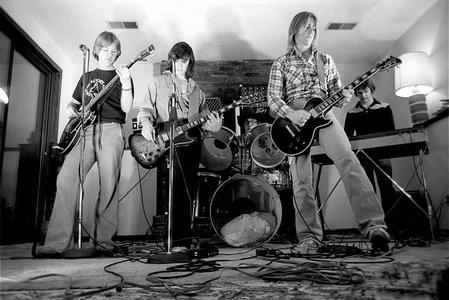
That being said – unless you’re extremely funny and are very self aware it’s almost impossible to not fuck up when simply addressing the audience. Anything beyond a “Thank you for coming out” is too much. And by god – if your frontman for a non political band ever says “This song is about…” then it might just be time to get off the stage.
4. A Sense Of Self Importance
This ties into the previous point and gets at the sense of humility that I’ve come to realize a lot of local bands need to have. When a band starts yelling at people to ‘fucking mosh’ for the fifth or sixth time in their set whilst receiving no reaction from the crowd… well I hate to sound like a dick but maybe y’all should back off.

The point being – in all honesty if you’re the opening act on a bill – it is more than likely that no one in the audience cares about your band beyond your friends in the crowd. The best attitude to have – as in all things – is gratitude. If you show that you’re happy to play in front of even five o six people then the promoter will respect you and maybe put you on a better spot in the bill.
3. Not getting on and off in a timely fashion
This is another one of those things that can make or break your chances of getting back on a bill and also can easily piss off the crowd. Nobody wants to go to a show that ends in two in the morning because one of the openers took half an hour to set up and then another twenty five minutes to get their shit off the stage.

Furthermore – not being able to get on and off efficiently is almost certainly going to frustrate a lot of promoters and make it harder for you to make solid connections at shows. If you’re “That fucking band” who make everyone late no one will like you. However if you can set up and be ready to go within five minutes the audience will have to respect your professionalism and ability to help make a show run smoothly.
2. Not respecting the other bands
One thing that really gets my goat at local shows is when the members of an opening band don’t bother to watch the bands. See – bands on tour I can give a pass to – those dudes have barely slept for two weeks and this might be their only quiet time all day. I also am understanding of people who don’t watch the band who play immediately after them because they’re loading out and cooling down. But ultimately – people who are shitty enough that they play a set and then leave to go home and sleep drive me crazy – it shows that you have no respect for your scene that birthed you and makes me wonder if you honestly want to be here in the first place.
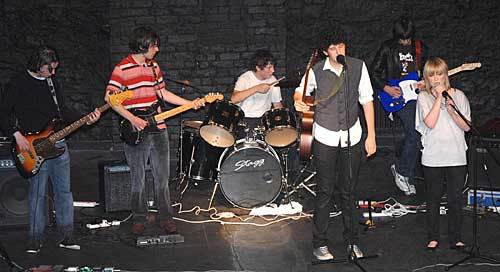
After all – at a lot of these shows where there are only ten or twenty attendees ever person makes a difference and your self centeredness to go home and hang out with your girlfriend hurts the entire scene – from the young band just starting out who think that now they don’t need to watch the other bands, to the guys who have given their lives to this thing and are trying their best to make sure that everyone has a good time.
1. Taking Yourself Too Seriously
This is another one of those cardinal sins that it’s easy to fall in too. Remember that, after all – we’re playing music. It’s fun and great but also kind of silly and you have to be ready to accept that. A band like Liturgy who wrote treatises about why they are true black metal drive me crazy because seriously… where do you get off? Are we here to have a good time or are we here to learn about what some precious ickle singer thinks is the true heart of metal?

Beyond that – while I understand pouring yourself into your art – hell I do – there is also a way to do it tastefully. Talking about your suffering on stage (Outside of a song) is probably being pretentious. Knowing how to balance a serious representation of your art without being a prick is something that professional bands need to master. It can be a hard balance to strike but it is also a very valuable one because it gives you a way to drive your art forward without annoying your audience, two notions that should be key to the development of any band.
As featured on Indie-music.com, Examiner.com, I Am Entertainment Magazine, Antimusic.com, and recommended by countless music publications, “Your Band Is A Virus! Expanded Edition” is the ultimate music marketing guide for serious independent musicians and bands. Get your copy now.
The post Five Things That Make A Serial Concertgoer Wince At Your Concerts appeared first on Independent Music Promotions - Guaranteed Music PR for Music With Depth Worldwide.
September 23, 2015
The Death of the Culture of Cool
The culture of cool in the music industry is dying. Slowly, quietly, but it’s happening. Suddenly artists are focusing on social issues again and weirdness is downright encouraged. In other words, it looks like, even though the end times may have come and no one is making money off this shit anymore, at least we’re finally getting some good tunes again. The point being – this speaks volumes a to what your band can do now, because not only does it give you more freedom but it also gives you a chance to present your band in totally new ways.
What I need to clarify though is that I’m not saying you need to make distinctly uncool music to be successful (As much as that particular technique might work for Modern Baseball) To some degree rock and roll and music in general will always be cool, Elvis made sure of that for us. What the death of the culture of cool means is that your music, now more than ever, needs to have substance if you want it to be accepted. As we get more and more able to look past the veil of mystique that once cloaked pop stars, the common fan is less and less enamored with the sense of godhood that they represent. We live in a world where famous people are essentially gods, but now little by little those old paradigms are failing.
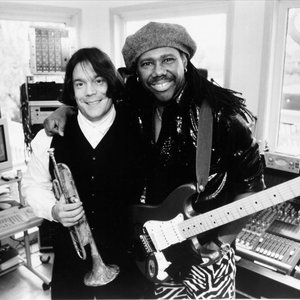
In the words of Mac Gollehon, renowned for playing on more than a hundred of gold, platinum and double platinum records, “music died in 1972… but now that musicians have nothing to lose it’s coming back around!” To be a musician means nothing these days. We live in a generation where all of our parents grew up playing in bands or just loving rock music and that was what gave them freedom. Now that we’re sixty years into this whole rock and roll thing it’s not enough to just play guitar and be in a rock band. When you look at the sheer quantity of music coming out these days even if your music has substance it’s easy for it to be lost among thousands of equally good records.
But again – the culture of cool is dying, and being image focused is now far less important than focusing on your overall message and what you represent. There is a very real importance to bands that broach social issues these days. For example, regardless of how you feel about him, you have to admire the remarkable web presence that someone like Bernie Sanders has been able to create. By employing an army of young people using non-traditional media he’s been able to make a dude who is decidedly uncool, into a front runner to be the next president of the United States.

Obviously Bernie Sanders isn’t marketing music (Although he actually has a few records under his belt!), but he stands as a perfect example for what can be done with an understanding of what truly riles up this generation. Millennials care more about individuality, perhaps more than any generation that ever came before them – they are the generation that will end up funding thousands of smaller bands rather than just a few big ones. And why? Because the notion of ‘cool’ has fragmented. While a few overall movements and ideas can remain cool (And definitely will for years to come) the notion of having just a handful of generation defining artists becomes more obsolete with every passing day.
We’ve seen this crack the mainstream with artists like Miley Cyrus, who may very well be tone of the only defining artists of this generation. She has been able to perfectly fuse the old and the new. While on the one hand she has gaudy stage shows that make parents mad, she also has received praise for her hard work to hep the poor and her pro-active liberal agenda. Regardless of how you feel about Miley Cyrus and her work, you have to acknowledge that she’s become a veritable juggernaut, and it’s not just because of her past as Hannah Montana. That being said – are her opinions, statements and actions fabricated? Possibly – but that is neither here nor there. The fact of the matter is simply that in the twenty first century if you want to ‘make it’ you’re going to need more than just great tunes.

I would like to clarify – your band does not need to be political to succeed. There are other bands that have been able to inject their music with substance that people care about. For example – the Killers have largely avoided a political message and yet they have achieved success by using music that reflects the American heartland. Even tried and true notions, like Buddhism or the high school experience still resonate with fans these days – there are paths forward, you just need to be ready to embrace each and every one of them.
So I leave you with this dear reader – know that more bands than ever are going to be able to make their livings as musicians in this new climate, they just won’t be making as money as the heroes of yore. We are at a very exciting time in the history of recorded music and there’s a lot riding on how we comport ourselves over the next few years. Remember – in this ultra-democratized music industry we are currently facing you personally have more of an impact on the future of how this whole thing works than ever before That being said – yeah there are always going to be people higher up the food chain than you but the doors have been broken, it’s now just a matter of passing through, pulling them apart and smiling, confident in the realization that the stuff we love has more potential to grow than ever if only we’re willing to give our all and truly go for it.
As featured on Indie-music.com, Examiner.com, I Am Entertainment Magazine, Antimusic.com, and recommended by countless music publications, “Your Band Is A Virus! Expanded Edition” is the ultimate music marketing guide for serious independent musicians and bands. Get your copy now.
The post The Death of the Culture of Cool appeared first on Independent Music Promotions - Guaranteed Music PR for Music With Depth Worldwide.


